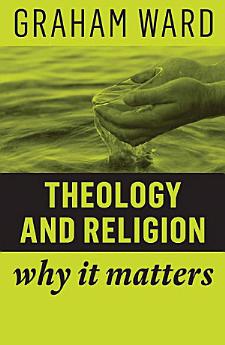Theology and Religion: Why It Matters
Graham Ward
ก.พ. 2019 · John Wiley & Sons
eBook
160
หน้า
reportคะแนนและรีวิวไม่ได้รับการตรวจสอบยืนยัน ดูข้อมูลเพิ่มเติม
เกี่ยวกับ eBook เล่มนี้
Graham Ward argues that the study of theology and religion, as a single academic discipline, plays a vital role in helping us to understand politics, world affairs, and the nature of humanity itself. Religion can be used to justify inhumane actions, but it also feeds dreams, inspires hopes, and shapes aspirations. By invoking a sense of wonder about the natural world, religion can promote scientific discoveries, and by focusing on shared experiences, religion helps to bind societies together. Some scientists now believe that religious feeling might be hard-wired into our DNA, a fundamental aspect of what makes us human. Because religion is rooted in the imagination itself, its study involves staring into the profundities of who we are. Religion will not go away, so it needs to be understood.
เกี่ยวกับผู้แต่ง
Graham Ward is Regius Professor of Divinity at the University of Oxford and the author of numerous books. He is also an Anglican priest.
ให้คะแนน eBook นี้
แสดงความเห็นของคุณให้เรารับรู้
ข้อมูลในการอ่าน
สมาร์ทโฟนและแท็บเล็ต
ติดตั้งแอป Google Play Books สำหรับ Android และ iPad/iPhone แอปจะซิงค์โดยอัตโนมัติกับบัญชีของคุณ และช่วยให้คุณอ่านแบบออนไลน์หรือออฟไลน์ได้ทุกที่
แล็ปท็อปและคอมพิวเตอร์
คุณฟังหนังสือเสียงที่ซื้อจาก Google Play โดยใช้เว็บเบราว์เซอร์ในคอมพิวเตอร์ได้
eReader และอุปกรณ์อื่นๆ
หากต้องการอ่านบนอุปกรณ์ e-ink เช่น Kobo eReader คุณจะต้องดาวน์โหลดและโอนไฟล์ไปยังอุปกรณ์ของคุณ โปรดทำตามวิธีการอย่างละเอียดในศูนย์ช่วยเหลือเพื่อโอนไฟล์ไปยัง eReader ที่รองรับ






